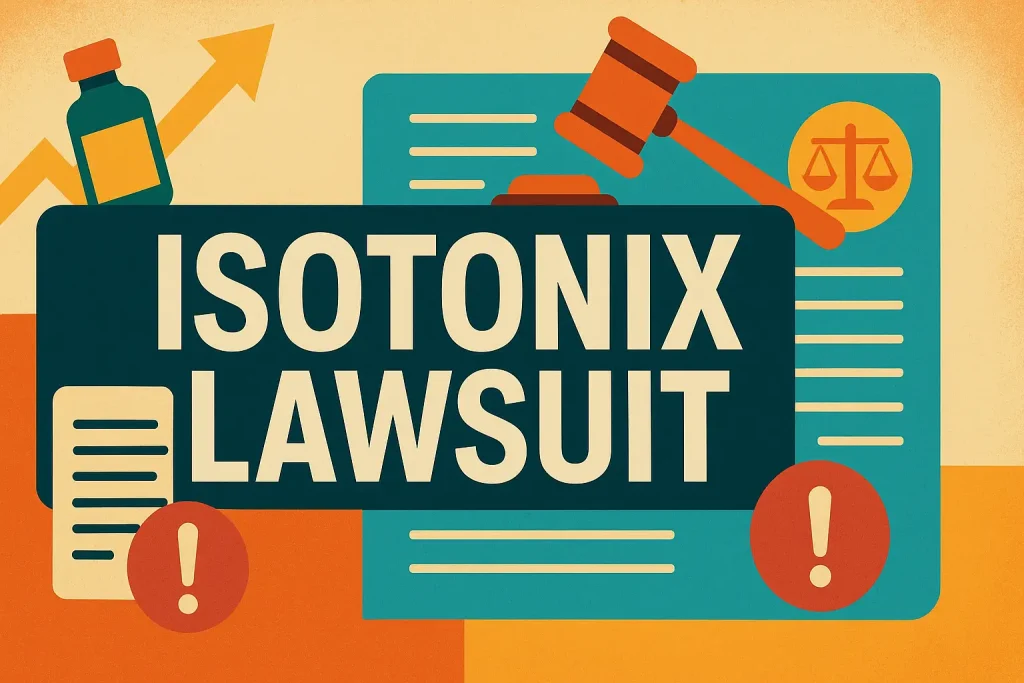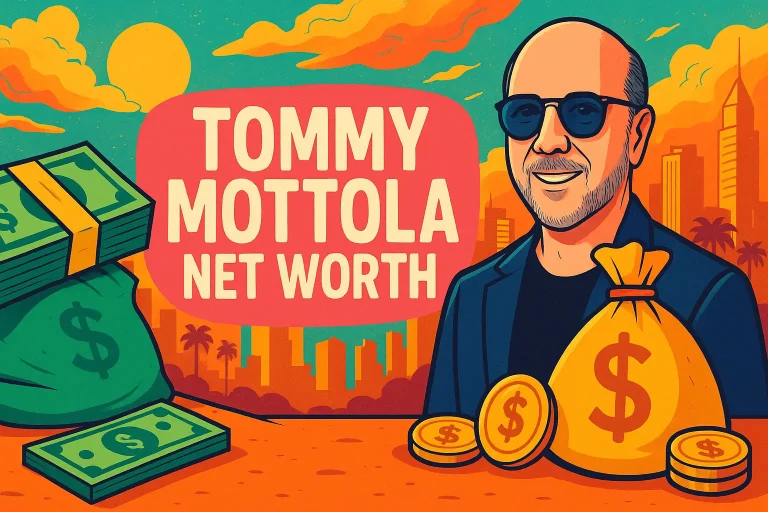
In a world obsessed with wellness, Isotonix stood tall as a symbol of health and vitality. However, recent legal storms have rattled the brand’s image. The Isotonix lawsuit has not just made headlines — it’s shaking the very foundations of trust in the dietary supplement industry. Through a wave of allegations and investigations, Market America finds itself at the center of a major legal and public relations challenge.
This detailed exploration dives deep into the Market America legal issues, the Isotonix pyramid scheme allegations, and broader questions about consumer trust. By the end, you’ll see not just what happened but also why it matters for every health-conscious buyer and seller today.
What is Isotonix Lawsuit?
The Isotonix lawsuit emerged when former distributors and consumers accused Market America of deceptive practices regarding their popular Isotonix supplements. Filed in 2023, the legal complaint targets multiple fronts — from unsubstantiated scientific claims to accusations of operating a recruitment-based multi-level marketing (MLM) model resembling a pyramid scheme.
At its core, the lawsuit challenges the heart of Isotonix marketing controversy: promoting health products with allegedly misleading claims while pushing aggressive distributor recruitment. The case has drawn the attention of regulatory giants like the FDA (Food and Drug Administration) and FTC (Federal Trade Commission), elevating it into a landmark dispute about health supplement lawsuits.
Also Read: https://fizzymag.co.uk/ceylan-eye-cream-reviews/
Key Allegations Surrounding the Isotonix Lawsuit
- Misleading health claims without credible clinical proof.
- Pyramid scheme structure focusing more on recruitment than product sales.
- False advertising using terms like “scientifically proven” without robust studies.
- Unreported adverse events, violating FDA supplement warning letters.
- Product mislabeling and lack of third-party supplement testing verification.
The above points mirror a broader trend of multi-level marketing scrutiny and consumer protection lawsuits across the supplement world.
Misleading Health Claims and Scientific Evidence Controversy
One of the most explosive allegations involves Isotonix health claims. According to sources like WispWillow.com, Isotonix advertised its supplements as offering “enhanced nutrient absorption” and “scientifically superior” results. However, no peer-reviewed studies or clinical trials fully supported these sweeping assertions.
This reliance on unsubstantiated scientific claims eroded Isotonix consumer trust. As consumers today grow more educated about supplement industry regulations, any sign of exaggerated promises creates immediate backlash, not just legal problems.
Pyramid Scheme Accusations Against Market America’s Business Model
The lawsuit alleges that Market America focused more on recruitment incentives than on actual product movement. Distributors reportedly faced pressure to buy inventory and bring new members onboard — a telltale sign of recruitment-based compensation models seen in pyramid schemes.
Investigative reports by TheMaineChronicle.com emphasized that Isotonix sales practices skewed towards creating revenue streams through recruitment layers rather than genuine customer demand — a major red flag under FTC regulations.
Regulatory Compliance Issues and Government Actions Involving Isotonix
The FDA warning to Market America dated back to concerns in 2016 and again in 2020. These warnings outlined violations such as improper labeling and inadequate reporting of adverse reactions — critical missteps for a company selling health products.
Meanwhile, the Market America FTC investigation targeted the company’s income claims made to potential distributors, accusing them of deceptive advertising, which violated established consumer protection laws. Reports from InternalMagazine.com confirmed that federal eyes were on Isotonix product mislabeling and unverified health claims.
Consumer Reactions and Trust Impact After the Isotonix Lawsuit
Following the lawsuit, consumer sentiment fractured. According to MiniHints.com, loyal customers defended the brand, praising personal benefits. However, a rising tide of skeptical users questioned the legitimacy of Isotonix supplements and demanded more transparency.
The most critical consequence? A massive dent in Isotonix consumer trust. Trust, once lost, is hard to rebuild — especially when dietary supplement transparency becomes a pivotal buying factor.
How Market America Responded to the Lawsuit and Public Criticism
- Updating marketing materials to remove unverified health claims.
- Introducing third-party testing to verify supplement efficacy.
- Revising distributor agreements to emphasize product sales.
- Strengthening compliance teams to meet regulatory standards.
In a statement covered by BuzzClassAction.org, Market America firmly denied wrongdoing. They emphasized their commitment to regulatory compliance and improving internal protocols to rebuild public confidence.
The Role of the FDA and FTC in the Isotonix Investigation
Both the FDA and FTC played crucial roles. The FDA supplement warning letters cited Isotonix for insufficient adverse event reporting and product mislabeling. Meanwhile, the FTC took aim at the company’s marketing claims about earning potential and health benefits.
Regulatory oversight is essential to ensuring safe consumer practices. This investigation highlights how powerful agencies can enforce accountability when supplement industry lawsuits emerge.
Impact of the Isotonix Lawsuit on the Broader Dietary Supplement Industry
The Isotonix lawsuit has triggered industry-wide introspection. Many companies are now tightening claims, increasing third-party supplement testing, and revisiting their multi-level marketing models.
Legal action against dietary supplements like this elevates standards across the board, pushing brands to value scientific validation over flashy, unverifiable marketing promises.
Lessons for Consumers: How to Spot Misleading Health Supplement Claims
- Look for third-party testing certifications.
- Check for peer-reviewed scientific studies supporting product claims.
- Be wary of miracle health promises.
- Verify FDA compliance and warnings before buying.
- Research MLM structures before signing up.
These smart habits empower buyers, reducing the risk of falling for deceptive health claims that plague the wellness market.
How Legal Actions Are Shaping the Future of Multi-Level Marketing (MLM)
- Stricter regulations on income claims.
- Higher disclosure requirements for distributors.
- Increased fines for misleading recruitment tactics.
- Mandatory third-party product verification.
According to LegalAnalysis.org, these shifts will dramatically reshape how MLMs operate, forcing them to prioritize product authenticity and consumer protection.
The Importance of Scientific Validation in Dietary Supplement Marketing
Scientific validation isn’t just a marketing buzzword — it’s essential. Supplements should undergo independent lab tests, clinical trials, and regulatory review to be credible.
The Isotonix lawsuit reminds both consumers and companies that unsubstantiated scientific claims carry heavy legal and reputational risks in today’s hyper-informed marketplace.
Timeline of Key Events in the Isotonix Lawsuit and Market America’s History
- 2016 – FDA issues first warning letter to Market America.
- 2020 – Second FDA warning letter regarding labeling and adverse events.
- 2023 – Multiple lawsuits filed by consumers and former distributors.
- Late 2023 – FTC opens an investigation into Market America.
- 2024 – Market America updates marketing practices and policies.
This timeline shows how mounting regulatory and legal pressures can escalate rapidly when early warnings are ignored.
Major Lawsuits Against Supplement Companies Similar to Isotonix
Isotonix isn’t alone. Brands like Herbalife and Advocare have faced similar MLM legal problems and FTC investigations over the years.
Such cases underline the importance of consumer skepticism supplements — encouraging shoppers to dig deeper into the brands they trust.
Current Status of the Isotonix Lawsuit and What Comes Next
As of early 2025, settlement talks are ongoing. Insiders suggest a major settlement could be on the horizon, with tighter operational regulations imposed on Market America Isotonix.
Whatever the outcome, the message is clear: dietary supplement transparency is no longer optional — it’s mandatory.
Potential Financial and Brand Damage for Market America
Facing massive legal fees, regulatory fines, and consumer backlash, Market America is bracing for a financial hit. Analysts predict potential losses in the tens of millions.
But perhaps the bigger threat is reputational: rebuilding Isotonix consumer trust will take years — if not decades.
Expert Opinions on the Legal Challenges Facing the Supplement Industry
Industry experts agree: the Isotonix supplement lawsuit is a landmark moment. It underscores the urgent need for supplement industry regulations and true scientific validation in product claims.
The future belongs to brands that invest in authenticity, consumer education, and full regulatory compliance.
FAQs
Is Isotonix still safe to use?
Yes, but consumers are advised to verify any health claims independently and consult healthcare providers.
Was Market America found guilty?
As of now, the case is ongoing, with no final verdict yet.
What supplements are affected by the lawsuit?
The lawsuit focuses primarily on the Isotonix line but impacts the broader Market America business model.
How do I verify supplement claims?
Look for third-party certifications and peer-reviewed clinical studies backing the product’s claims.
What happens next with the Isotonix lawsuit?
Settlement talks are in progress, and stricter regulations on operations are expected soon.
Final Thoughts
The Isotonix lawsuit is more than a legal battle; it’s a wake-up call for the entire supplement industry. For consumers, it’s a reminder to stay informed and demand transparency. For companies, it’s a clear signal: scientific validation, honesty, and consumer trust are non-negotiable.
By embracing these lessons, we can look forward to a healthier, more trustworthy wellness industry — one powered not by hype but by hope, science, and integrity.




